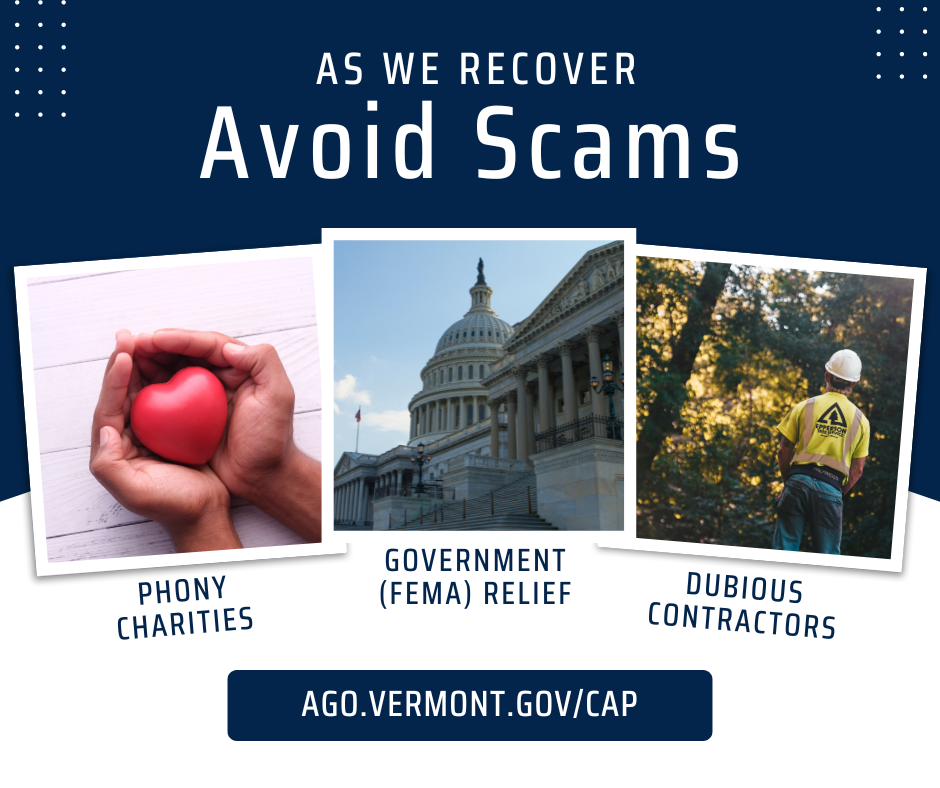Government imposter scams were among the top scams reported to the Consumer Assistance Program by Vermonters in 2025. These scams take many forms, with fraudsters posing as federal or state agency.
Vermonters have reported many DMV imposter scams threatening license revocation due to outstanding driving violations. Similarly, a wave of Economic Services imposters last fall prompted a statewide scam alert.

In the new year, scammers are again targeting recipients of 3SquaresVT – also known as SNAP or food stamps. The imposters attempt to phish for personal information, including EBT card numbers, and threaten benefit suspension if the information is not provided. In some instances, spoofed caller IDs appear as “AHS,” when it is not. The Vermont Attorney General just issued another scam alert.
Scammers impersonate government agencies because it creates a sense of authority and urgency. They hope to induce fear and panic, driving people to act quickly to resolve a pressing problem. Once they have your personal information, scammers use it for their own financial gain.
Keys to avoiding government imposter scams:
- Know that government officials will not threaten benefits suspension in exchange for personal information.
- Your license will not be taken away because of a threatening unsolicited phone call, text, or email.
- When it comes to government imposters, it is best to hang up.
If a call or message seems legitimate, take steps to verify by contacting the government agency directly using official contact information. Vermont agencies can be found using the Vermont.gov website. Always check that government website addresses end in “.gov”.
For this recurring 3SquaresVT scam, do not respond and never share your EBT card number with an unknown caller. Economic Services will only contact you about SNAP benefits using the following numbers:
- For text messages: 800-215-3243
- For phone calls: 800-933-3405
When you encounter government imposters, hang up and report the scam to the Consumer Assistance program online or call 1-800-649-2424.


